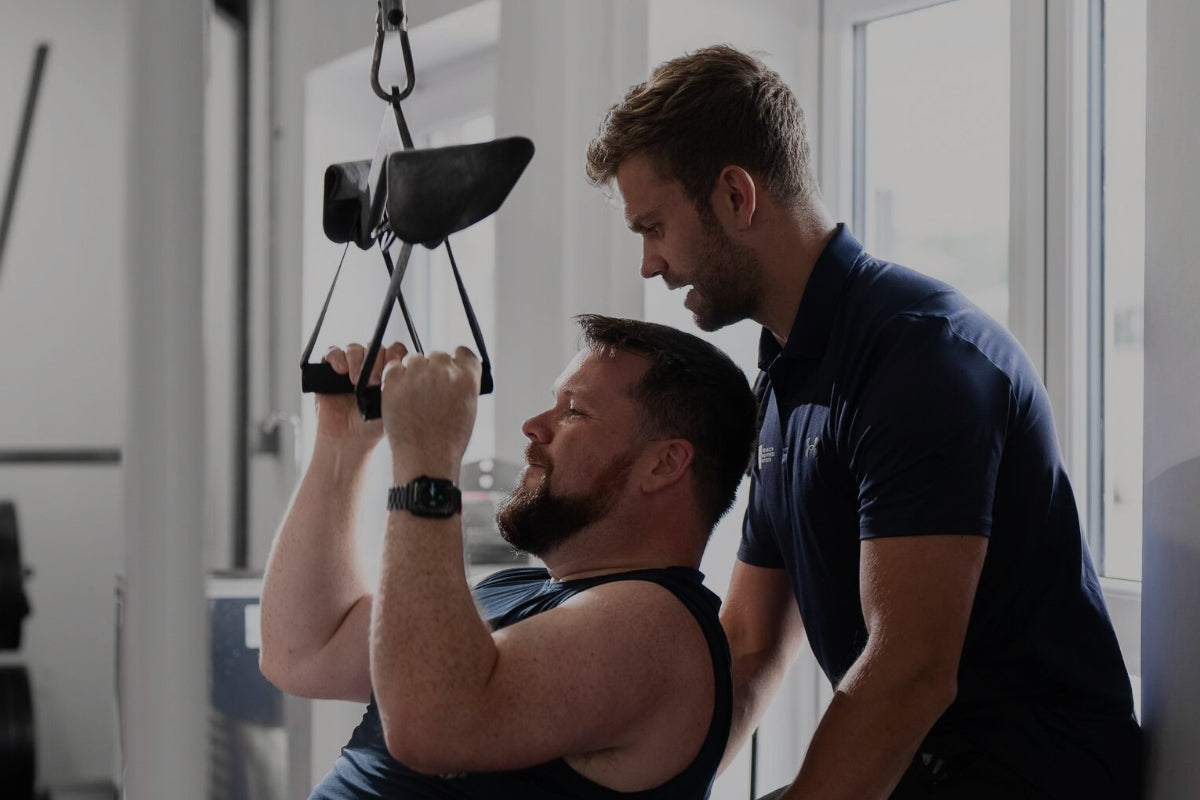The Importance of Mental Health Awareness for Personal Trainers

Could you spot the warning signs of a client struggling with mental health problems?
Would you know how to help them overcome periods of stress or anxiety?
Most trainers aren't taught these vital human skills when they qualify.
But learning the ropes of mental health awareness and knowing the red flags to look out for is so important.
This article will teach you the tell-tale signs of mental health issues and give you some actionable strategies to address them.
It will enable you to build stronger client-trainer relationships, make you a trusted confidante, and allow you to get better results and health outcomes for your clients...
The importance of mental health for your clients
If you want the best outcomes for your clients, you cannot overlook the importance of mental health.
While most trainers will focus solely on giving tough workouts and diet advice, mental health can have a huge bearing on your clients' training performance and results.
Good mental health can be a catalyst for strong motivation, consistency, and peak physical performance.
But poor factors like stress, anxiety or low mood, and barriers such as self-doubt or fear of failure can really hold back your clients' progress.
As personal trainers, our role isn't just to count reps; it's to help clients overcome these challenges to reach their potential.
You can do this by integrating mental health awareness and wellbeing strategies into your service...
Recognising the signs of poor mental health
As personal trainers, we are on the frontline, witnessing the highs and lows of our clients' journeys. It's our responsibility to be vigilant, to recognise when a client may be struggling mentally, and to adapt our approach accordingly. The first step? Knowing the signs.
1. Changes in behaviour
Observing our clients' behaviour can be a barometer of their inner world. Changes might manifest as a lack of punctuality, diminished enthusiasm, or a sudden reluctance to participate in certain exercises. Such alterations in routine behaviours might indicate stress, anxiety, or other mental health issues. As trainers, being attuned to these subtle shifts is vital, as it allows us to probe, understand, and offer the necessary support or adjustments in the training regimen.
2. Shifts in mood and engagement
If your usually vibrant client seems suddenly withdrawn or if their engagement is waning, these might not just be temporary bumps in the road. These shifts could be red flags, signalling deeper struggles, such as depression or burnout. Recognising these changes early is crucial, as it allows us to adapt our approach, offering support, and possibly altering our strategies to rekindle that spark and maintain progress.
3. Changes in physical performance
Poor mental health can manifest as a decline in physical performance in the gym, too. If a client is struggling with routines that were once a breeze or if fatigue is setting in, these might not just be mere physical setbacks. They could be signs of stress, anxiety, or other mental health issues. By recognising the signs, we can take steps to ensure any issues are addressed so the client feels seen, heard, and valued.
Strategies for addressing mental health with your clients
Recognising signs of mental health issues in your clients is pivotal, but it's the actions you take next that really count.
As trainers, we can implement strategies to address mental health, cultivating an environment that's not just conducive to physical growth, but good mental wellbeing as well.
1. Create a supportive environment
The atmosphere in your training sessions can make or break a client's experience and progress. Creating a supportive environment is about laying the foundation for trust, openness, and growth. This involves building rapport, displaying empathy, and setting realistic goals. Using positive reinforcement, maintaining confidentiality, and demonstrating adaptability also contribute to a strong trainer-client relationship.
2. Take a non-judgemental approach
It's essential for clients to feel accepted, valued, and free from criticism. This attitude creates a safe space where clients can be their authentic selves, share their struggles and triumphs, and feel secure in the knowledge that they are understood and supported.
3. Encourage openness
Hand in hand with a non-judgemental approach is the encouragement of openness. It's about creating channels for communication allowing clients to express their thoughts, feelings, and concerns. Remember, dialogue is a two-way street – it's as much about expressing as it is about being heard. This sense of openness fosters a strong trainer-client bond, integral for navigating the fitness journey together.
4. Show you care
Starting a conversation about mental health can be daunting, but it's essential. It's about creating a safe space, asking open-ended questions, and showing genuine concern. You're not prying; you're showing that you care about more than just their physical progress. This builds trust and loyalty, which are the foundations of a successful trainer-client relationship.
5. Sit and listen
Listening is an art, and in this context, it's therapeutic. It's about hearing what's said and what's left unsaid. Empathy is your compass here – it's about understanding their perspective, validating their feelings, and showing that they're not alone.
6. Suggest mindfulness and relaxation techniques
These methods help your clients wind down, connect better with their bodies, and feel more relaxed. Breathing exercises can help reduce stress, improve focus, and enhance overall wellbeing. Meditation can be another way for clients to take time out of their day to become more mindful and clear their heads.
7. Celebrate every 'win' with positive reinforcement
Celebrating small wins is key. It's about recognising progress, no matter how minor, and reinforcing it with positivity. This approach builds confidence, fosters a sense of achievement, and fuels motivation, turning each session into a victory, a step closer to the ultimate goal.
8. Know when to refer to mental health professionals
While our role as personal trainers is crucial, we must acknowledge the boundaries of our expertise. There are times when professional mental health intervention is necessary, and recognising this is key to ensuring our clients get the help they need. Knowing when to refer a client to a mental health professional is a skill in itself. It's about recognising when a client's needs surpass what we can offer, and acting in their best interest.
Conclusion
You cannot divorce physical health from mental health.
If you want to give your clients the best results, you need to give them the tools and support to foster good mental health.
Implementing strategies that foster trust, encourage open communication, and promote mental health is not optional; it's fundamental to our role.
Our responsibility extends beyond just writing workouts and counting reps to ensuring our clients are supported holistically, addressing both their mental and physical needs.
Being proactive, knowledgeable, and empathetic in addressing mental health issues directly contributes to our clients' overall success and underscores the importance of our role in their transformative journey.




















